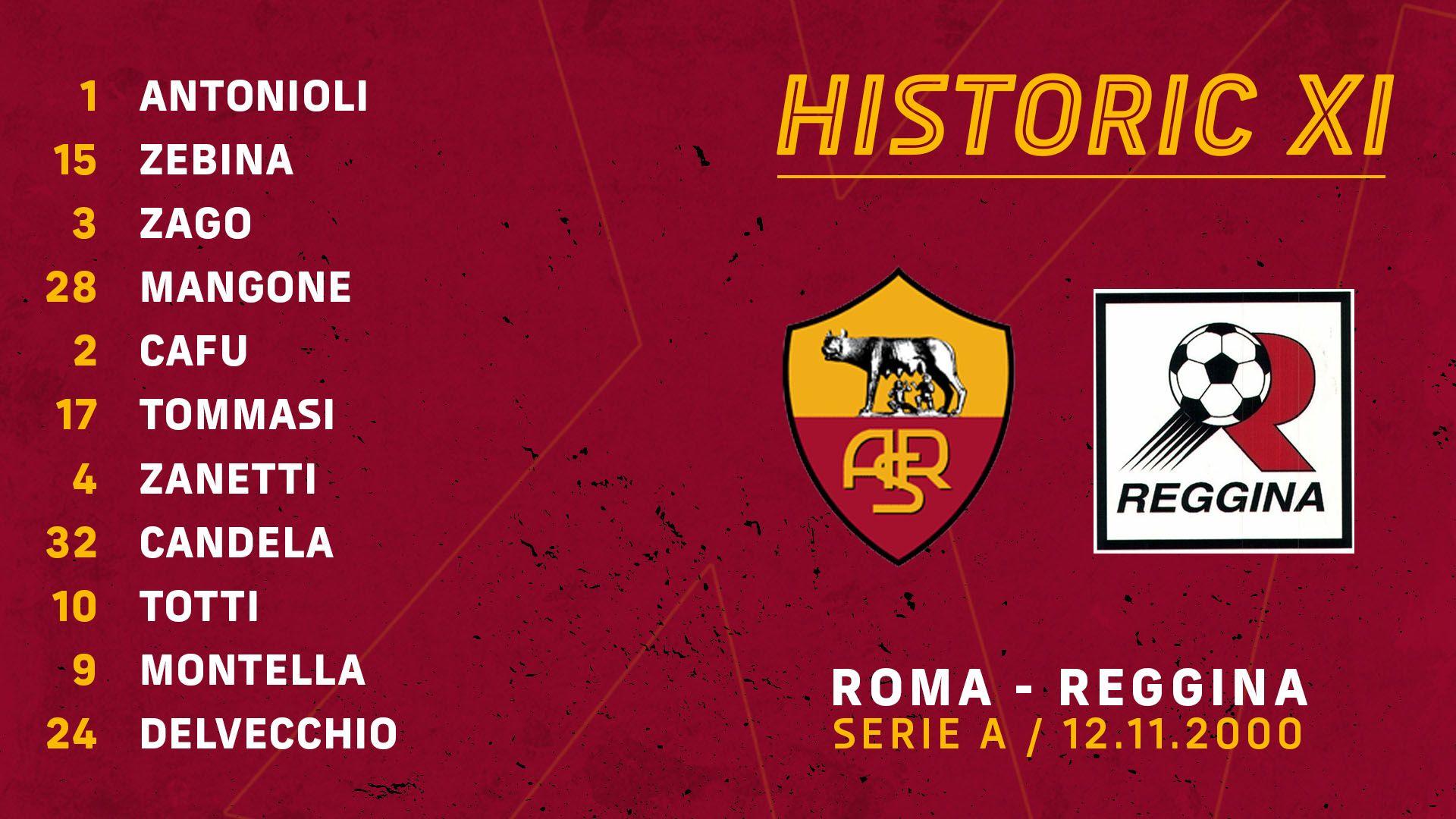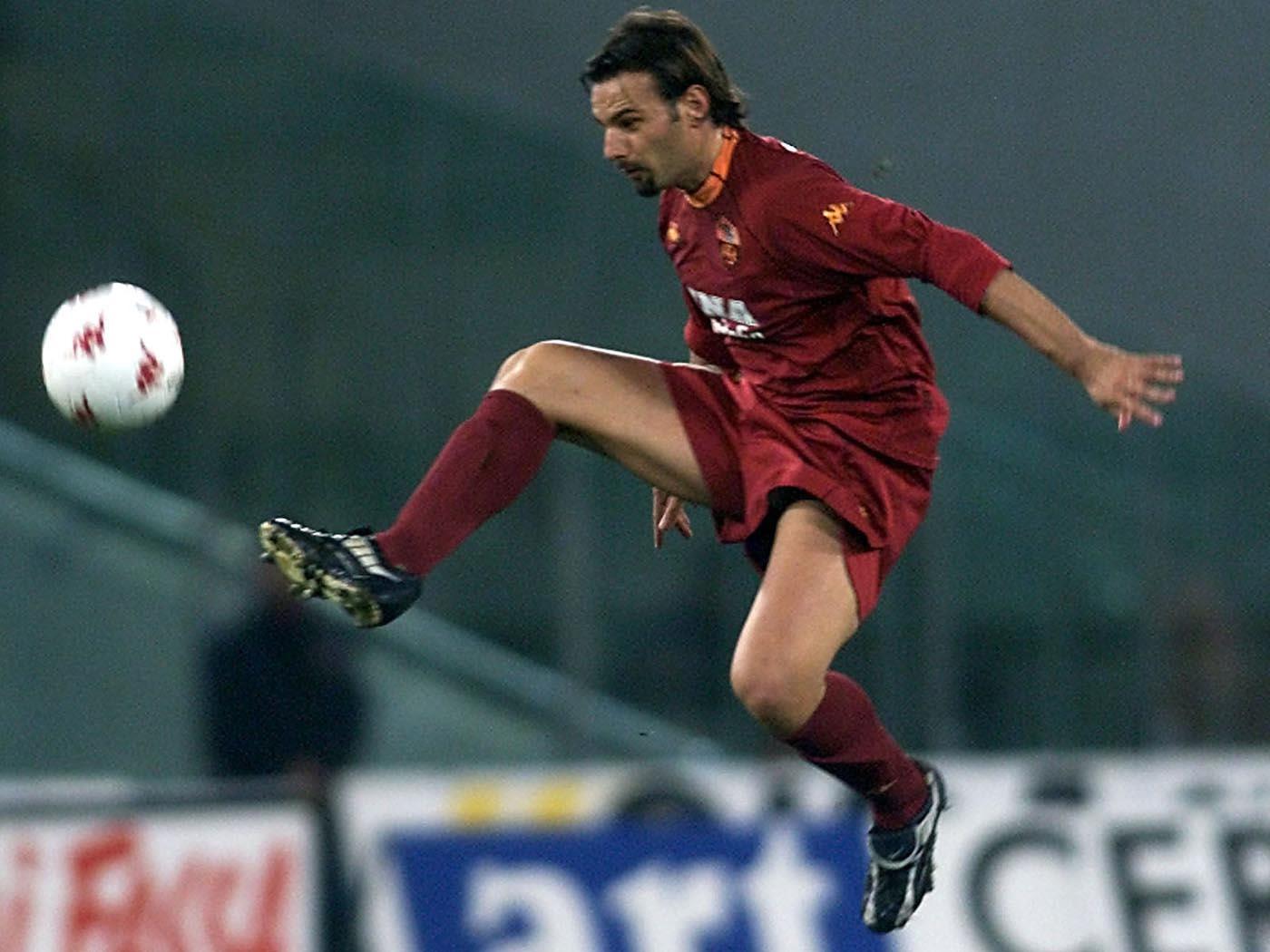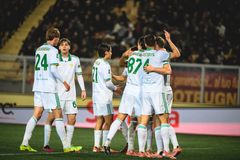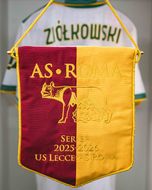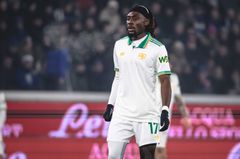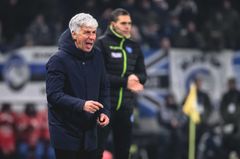
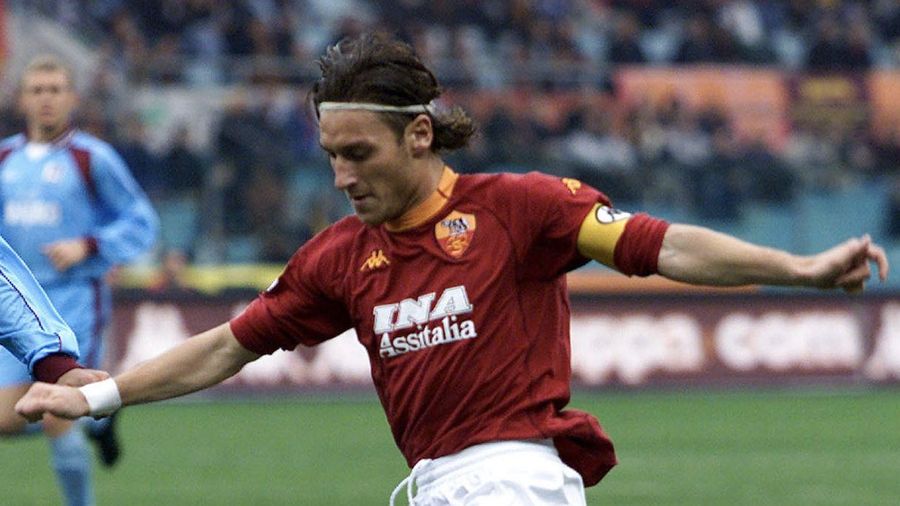
Get to the front - and then stay there. That's the task of all title chasers and, on this day in 2000, Roma did that - on the way to the historic third scudetto in the club's istory.
The opponents that day at the Stadio Olimpico were Reggina, who would eventually fall to a 2-1 defeat. And so, after a brief dip following an away defeat to Inter Milan, Fabio Capello's side returned to top of the table.
A lead they would not subsequently give up.
By the end of the weekend, the sixth of the season, the Giallorossi sat top on 15 points - closely followed by Atalanta (14) and Udinese (13). The two teams that would eventually prove the most determined challengers, Juventus and Lazio, were still to find their footing.
The goals that day came from Francesco Totti and Vincenzo Montella - both of whom would finish the season with 13 to their credit in Serie A. On the first game of the season without Gabriel Batistuta to also call upon, it underlined the new depth and breadth Roma's attack now possessed.
Before the game, captain Totti laid a wreath in front of the Curva Sud for Dante Ghirighini, a prominent and beloved Rom fan.
With Ghirighini's famous scooter sitting there, fans cheered 'Daje Roma daje!' both for their fallen comrade and for the team as it prepared to go into battle.
The 90 minutes was not exactly straightforward. Totti gave the side the lead from the penalty spot in the first half, but a second half header from the Albanian forward Erjon Bogdani got the visitors back into the contest.
The Giallorossi kept pushing, but Massimo Taibi in the Reggina goal seemed almost unbeatable. In the end it took something special to beat him; Cristiano Zanetti's long ball found Totti, who put the ball in for his strike partner to volley home beyond the goalkeeper.
Montella was withdrawn soon after, allowing Abel Balbo to make his first appearance of his second stint for the club.
When the final whistle blew Roma were back on top - and they would stay there too.
The Starting XI That Day
Francesco Antonioli: The following day Corriere della Sera would offer notable criticism of the goalkeeper, writing, "As President Sensi made the usual tumultuous post-match walk from the stands, fans shouted at him "You'll never win the title with a Serie C goalkeeper!" Of course, in the end Roma would do just that with Antonioli between the sticks - the goalkeeper making a number of important stops along the way. In the end, he made 145 appearances for the club.
Antonio Carlos Zago: The passport was Brazilian, but to all intents and purposes he was a very European sort of player. A central defender who seemed particularly adept in the one-on-one contests, he also knew how to move the ball out from the back - and was often the defender given that task. 138 games, two goals for the club.
Amedeo Mangone: The transfer market works in mysterious ways - somethng Mangone knew better than most during his career. Bought, at 31 years of age, from Bologna in the summer of 1999, Capello opted for experience and security when some ambitious overtures towards young West Ham centre-back Rio Ferdinand proved a reach. Mangone would offer a lot to the squad in a different way; a dependable back-up he also played a huge role in the dressing room. 49 appearances for the club in total.
Jonathan Zebina: Signed from Cagliari in the summer of 2000, the French centre-back immediately became something of a cornerstone of the Giallorossi defence, with his physical qualities and his athletic ones offering a different dimension to some of his teammates. That didn't mean he didn't sometimes make careless mistakes, but Capello took tat as a price paid for everything else he brought. 126 games for the club, one goal (against Juventus).
Marcos Cafu: A double World Cup winner (once as captain), a Scudetto winner with Roma and then subsequent success with AC Milan too. In his 218 appearances for Roma (with eight goals) he wrote his way into the club's history.
Damiano Tommasi: 351 games, 17 goals, and a reputation as one of the most beloved Roma players of that period. 'Gioca bene o gioca male, lo vogliamo in Nazionale' ('Playing well or playing badly, we want him playing for Italy') was the chant, somewhat ironically, used to serenade him. He may not have been technically the best player ever, but over time his leadership, his tactical sense and his hunger more than made up for that.
Cristiano Zanetti: A makeweight in the deal that took Luigi Di Biagio to Inter in 1999, initially Zanetti's arrival in the capital was met with much skepticism and consternation. They were all won over pretty quickly, however. In his second game as a starter, the derby with Lazio, Roma scored four goals in 30 minutes on the way to a 4-1 win - with Zanetti providing the assist for the opener. In the same fixture, he was also the man nearest to Paolo Negro for his famous own goal. In the end he made 44 appearances for the club.
Vincent Candela: Another full-back coaches dream about, comfortable on either foot and in any phase of the game. In 1998 he would play his part in France's World Cup-winning squad, and in 2000 he would add a European Championship title to his honours too. Another vital member of the Scudetto side, he could do it all from out there on the left.
Francesco Totti: The No. 10. 786 games, 307 goals (250 in Serie A). All of them for Roma. Any more need to be said?
Vincenzo Montella: Roma's No. 9 for so many seasons, even if he absolutely didn't fit the prototype for a side's main goalscoring threat. A dogged, determined forward - so much so that he wouldn't give his number up even when Gabriel Batistuta arrived to so much clamour in 2000. 'A Romario born in Pomigliano D'Arco', some would say. Whatever the case, 102 goals in 258 is a solid return on any investment.
Marco Delvecchio: Delvecchio had the build and finishing ability of a classic No. 9, yet for the Giallorossi he would fill almost every role across the frontline (most often starting out wide) in order to accommodate so many of his talented teammates. He did the same thing at international level too, and was just minutes away from deciding the Euro 2000 final (before Sylvain Wiltord equalised at the end of normal time). A year later, he had done his part as Roma won the Serie A title. 83 goals in 300 games does not do justice to the extent of his value.

 Tickets
Tickets
 Shop
Shop














